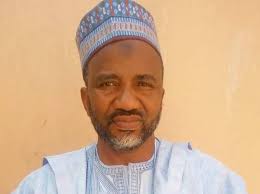It is very sad that elections in Nigeria have always meant there would be more work for grave diggers. Many get killed during elections, owing to no fault of theirs. The orgy and tempo of violence at election time would remind war veterans of what they had experienced at various eras of turbulence.
Election rigging, ballot box snatching and vote-buying are but some of the negative activities that have refused to disappear from our electoral culture. These unwelcome aspects of our political culture seem to have continued to be embellished in successive years. In some societies, voting to elect leaders is a celebration of democracy. In Great Britain, for instance, many might not even know that voting was going on next door. Quite a number of pensioners and old people, who would want to seize upon an opportunity to kill boredom, help at the polling stations. It is time we injected decency into our electoral behaviour and ensure that our politics could be at least what Stokely Carmichael once described as “war without violence”.
The 2019 general elections have been concluded, although some outcomes are still being disputed. Even when our contemporary electoral behaviour cannot be the banner without stain for a future generation, nevertheless, there are some positives that one can take from the outcome. And this, in itself, is to say that democracy is work in progress. Democratically, our nation is still very young. Even in the more advanced democratic nations, democracy cannot be said to have attained ultimate perfection.
One positive take from our collective crudity is that the will of the majority prevailed in quite a number of the states. For instance, I had been plotting in advance and within myself how to celebrate the electoral victory of Adebayo Adelabu, the grandson of the famous Chief Adegoke Adelabu, until I spoke with a few people from Oyo state.
I had thought that the legendary and fanatical support, which the people of Ibadan gave Adegoke Adelabu, would rub off on the grandson who was a governorship candidate on the platform of the All Progressives Congress. However, I was warned that Adebayo might not win the election. The election, according to those I spoke with, would be an opportunity to punish the “arrogance” and “intransigence” of the incumbent governor, Abiola Ajimobi, who also lost his own bid to be elected senator.
There were quite a few other states, such as Kwara and Benue, for instance, where the outcomes of elections were predictable and projected based on strongly-held local issues. In Benue state, the deadly clashes between farmers and herdsmen were projected to impact against President Muhammadu Buhari, not least because of his shared affinity with the herdsmen and perceived lacklustre approach to a very serious crisis. The outcome of elections in Kwara seemed to be all about the determination of the people to end the legendary stranglehold that the Saraki family had had on the politics of the state over the years. The Senate President, Bukola Saraki, would appear to have fallen out of favour with the majority of the locals.
This is not about whether or not one supported the re-election of Buhari. It is about integrity in political behaviour. One celebrated the re-election of Buhari because there was a lesson in it for political prostitutes and fugitives who have embraced the culture of migrating from one political party to another for selfish interests. Those who defected from the Peoples Democratic Party to boost the electoral success of the APC in 2015 would probably have assumed, in the exaggeration of self-importance, that their return to their former party would end the presidency of Buhari in the 2019 election. That Buhari won, regardless, should be a lesson to our politicians to remain loyal to their political parties and contribute to their development and not their destruction. There is also a lesson for those who might have assumed that the colonial officers handed over Nigeria to them as caretakers, not to be too presumptuous of their power and influence.
Finally, there is a lesson in the 2019 presidential election for our ambitious young politicians. It takes more than carrying a placard for the actualisation of June 12, for instance, for one to claim that he or she could be president of a massive country like Nigeria. Experience in governance is very important. It is also instructive that such an ambition can hardly be achieved on the platform of a makeshift political party. Barack Obama would never have been president of the United States if he was on his own and not a member of a political party that had the capacity to win the presidency. A political party that would win the presidency, in our type of divided society, cannot be anything other than an amalgam of diverse and even conflicting interests. Hence, you have supporters of various ideological persuasions or temperaments in presidential political parties – right wing, left wing or moderate. There is no logical explanation for the number of bloated political parties that we have in Nigeria.
Akinola wrtes from Oxford, United Kingdom.



